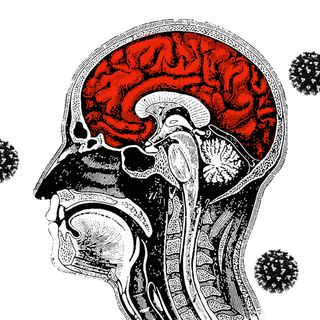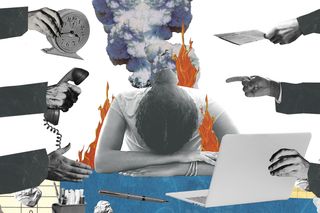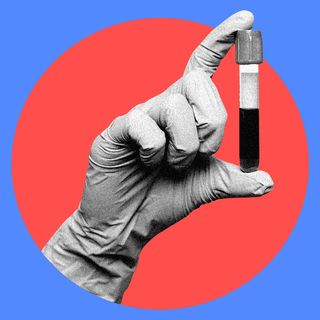
Workplace Burnout Can Damage Confidence, Relationships for Years
“In more severe cases, heightened levels of stress can lead to changes in brain structure, and as a result of that, the effects may persist for years,” says one psychotherapist.

“I reached a stage in 2020 where I felt pukish every time I had to look at the laptop screen and was irritated every time I heard someone say ‘shares’,” says K.G., 26. He explains how this was his sign to finally leave his corporate law firm job, after three and a half years of constant late nights, weekend work, and the frantic deadlines.
Recognized as an “occupational phenomenon” by the World Health Organization (WHO), burnout is characterized by a deterioration in energy, sleep, performance, memory and concentration, and even health. The less obvious aspects also involve loss of hobbies, socializing, nurturing relationships with loved ones, and even self-care.
Amid the Covid19 pandemic, reports find one in every three Indian professionals are dealing with burnout, indicating that the present generation of working professionals may have significant personal losses to recover from in the years to come, even as the world recovers from an economic crisis.
“[Burnout] will have an emotional effect, which will be more long-term, because re-establishing that connect with your self, with your body, with people you love, takes a long time,” Samriti Makkar Midha, a Mumbai-based psychotherapist, explains. And such a recovery takes far more than just going on a holiday — popular, if misguided, advice for individuals suffering burnout. Physical and mental health need tending. Relationships need repair. Careers need revival.
K.G., for instance, first noticed the symptoms of burnout two years before he finally quit. At that point, he took a three-month hiatus to recover. But once he got back — fatigued, ill, unable to perform with the same level of detail and attention he once did, and feeling like he wasn’t doing justice to his work despite reassurance from colleagues — the symptoms of burnout persisted.
In a society with limited knowledge about occupational burnout, and how best to address it, people often ignore their symptoms and keep pushing themselves — which can prolong their burnouts, make it more severe, and leave more long-term scars. “The individual may feel there’s something wrong with them for feeling the way they are. They will doubt their effort, their commitment and ignore their own emotional warning signs,” Ankita Jain, a Hyderabad-based psychologist, says.
Related on The Swaddle:
Has Work‑From‑Home Eliminated ‘Monday Blues’ Or Made Them Worse?
“I kept piling it up; I didn’t tell anyone,” says Varsha, 28, who experienced occupational burnout one year into her first job as a software professional. She pressed on for another year, but it only got worse. As the hours got longer and work pressures kept increasing, she started withdrawing emotionally and dreading work. “Forget therapy, I didn’t even share what I was going through with my parents or friends. …I kept pushing myself to complete two years, at least, for my résumé. But I just kept getting saturated [with the stress].” She finally quit after she developed a painful pilonidal cyst from sitting for long hours at her desk, which required surgery.
“In more severe cases, heightened levels of stress can lead to changes in brain structure, and as a result of that, the effects may persist for years altogether. Additionally, some people may also develop hypertension or diabetes due to stress and it may warrant a long-term lifestyle change,” Midha explains.
Others face emotional and social, rather than physical, health struggles as a result of burnout. “There’s also an element of depersonalization — they don’t feel in sync with who they are. That’s another long-term effect where, they feel away from themselves, from who they are,” explains Bhasker Malu, Assistant Professor of Psychology at Christ (Deemed to be) University, Bangalore, adding: “Even if they accomplish a lot, they don’t feel like they have accomplished a lot.”
This disconnect and doubt can also significantly affect people’s confidence, leaving behind long-term social and personal losses.
“The lived experience of losing their self-confidence and feeling low can seep into personal relationships, too. And to get things back to how they were is difficult. Can they eventually work on themselves physically, psychologically to help build healthier relationships? Possibly, but one can’t remove the person from that experience, and the loss that the experience brought. And that’s a loss they often continue to grapple with,” Midha notes.
For K.G., the burnout impaired his ability to appreciate the very people he needed for support. “I had become extremely judgmental and critical of other people. As a result, my relationship with friends and family was a mess,” he recalls.
Related on The Swaddle:
Lack of Autonomy at Work Linked to Workplace Stress, Cardiovascular Problems
Professionally, recovery from burnout is not always as simple as finding another job. Burnout can change the way a person views future work and what type of worker they are.
“The fear of relapse will always linger. This leads many clients to express a lack of willingness to return to work/activity, reduced drive, and productivity, and lack of willingness to take initiatives — leading people to be perceived as non-committal. Guess as the saying goes, ‘Once bitten, twice shy,'” Jain explains.
Even when burnt-out individuals are ready to return to work, their break for recovery can mean they’re less competitive, with skills that haven’t been kept up-to-date. Moreover, they might not feel up to the effort of updating their skills. “In the kind of work lives that we have, it’s a constant requirement to develop new skills with technological advancements. But people who face burnout early in their careers, or experience long-term effects, sort of show this trend being apprehensive of learning new things,” explains Malu.
Experiencing a burnout can sometimes steer people to understand themselves better and reevaluate their life choices so that they don’t burn out again. Often, a burnout can even be the catalyst that leads people to realize that their present profession and/or the associated lifestyle aren’t for them. Midha notes that after experiencing a burnout, people often switch careers.
Three years since Varsha experienced job burnout, she is now a speech and drama instructor. “I think because of the burnout, things have changed for good. Currently, I’m in a profession that I love and enjoy every bit of, and I ensure that I take breaks, I travel, I give time to myself,” she says
“After experiencing a burnout and its effects on their physical and emotional health, and even in their relationships, people have consciously tried to make choices to be able to attain a work-life balance,” explains Midha.
It has taken K.G. two years of conscious effort to start healing from his burnout. He’s been working out regularly, eating healthy, and socializing more. He’s also working on converting a childhood hobby into his new profession. He’s encouraged by the slow change he has seen in himself.
Devrupa Rakshit is an Associate Editor at The Swaddle. She is a lawyer by education, a poet by accident, a painter by shaukh, and autistic by birth. You can find her on Instagram @devruparakshit.
Related


Study Identifies Common Gene Behind Endometriosis, Depression, Gastrointestinal Diseases
